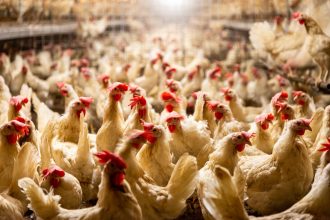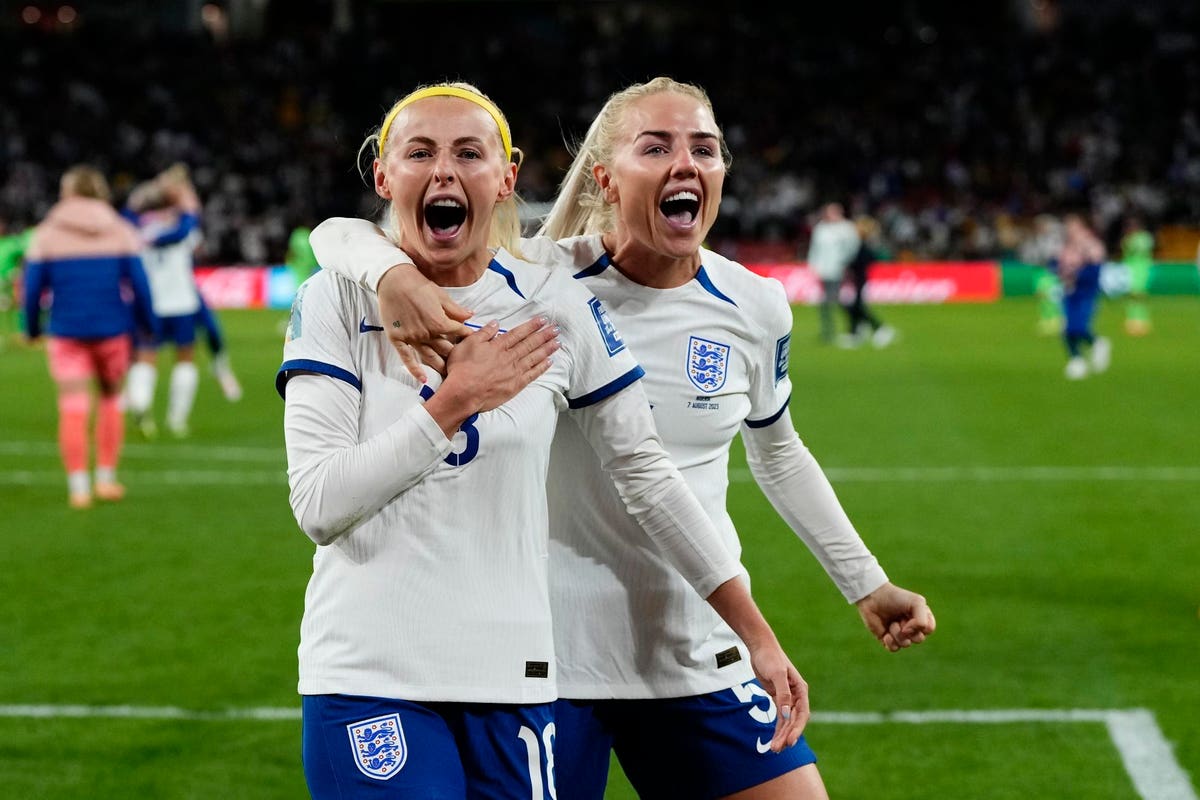England’s success-starved soccer fans are aiming to brunch big this weekend, as the women’s national team look to secure a historic World Cup Final trophy win over arch rivals Spain.
The current European champions are looking to follow their continental success and replace outgoing champions the USWNT, who never quite managed to recapture past form over the tournament in Australia and New Zealand.
The 11am kick off U.K. time is expected to attract 13.7 million television viewers while supermarkets, pubs and TV advertisers are looking to score sizzling weekend sales amid a damp squib of a summer.
England’s appearance in the FIFA World Cup Final – the first by the women and only the second ever after the men lifted the trophy in 1966 – is expected to add an estimated $235 million to the U.K. economy according to a report from VoucherCodes.co.uk.
While 11.1 million people are expected to watch the final at home, a further 2.6 million will be heading to a pub, bar or restaurant, boosting the hospitality sector.
Retail spend is expected to reach $175.5 million in the run-up to the big match, the Women’s World Cup 2023 spending report estimated, with food, beverages and new TVs all among the top sellers.
Unsurprisingly, the largest proportion will be spent on food and beverages ($131 million), while sports apparel ($21million), merchandise ($8.5 million), electricals ($7.8 million) and decorations ($7.1 million) are all set to receive a boost.
Total hospitality spend could reach $60 million but because of the early kick-off not all of the spending on beverages will come not from beer sales but rather tea and coffee ($8.2 million).
Pubs Expect Sales Surge
Many pubs and bars will open early to screen the match, but the U.K.’s strict licencing laws mean that the majority will be unable to serve beer before 11am, although the Government’s levelling up secretary, Michael Gove, has written to the leaders of all the councils in England asking them to do “everything they can to help pubs get open earlier on Sunday”.
That said, pubs are expecting increased demand, with trade body UK Hospitality estimating an additional $52 million in sales.
A number of retailers have shared their expectations ahead of Sunday’s crunch game.
Supermarket leader Tesco said it expected burger sales to more than double this weekend compared with last, with beer sales up 35% and Champagne sales up 30%.
Sainsbury’s, the U.K.’s second largest grocer, saw beer sales jump over 20% week-on-week for the Lionesses semi-final victory over Australia on Wednesday.
Upscale grocer Waitrose said that its stores have been stocking up on extra bacon, eggs, sausage and English fizzy, with searches for ‘brunch’ on its site up 54%.
“All the ingredients for a great brunch will be flying off the shelves quicker than a Lauren Hemp strike,” Waitrose customer director Nathan Ansell said. “Customers are already looking to celebrate with cooked breakfasts – and some chilled fizz in readiness for a potential win.”
Meantime, discounter Aldi is expecting to sell more than 1 million packets of potato chips and 250,000 cans of beer this weekend, while sales of burgers are forecast to increase by 96%. It predicted that 45 bottles of prosecco will be sold every minute.
TVs, Merchandise And High Expectations
England’s defeat of host Australia Wednesday prompted a 710% increase in sales of England football merchandise online over the daily average, according to data from Adobe Analytics.
TV sales are also on the rise, according to online electrical retailer AO.com, with some soccer fans looking to upgrade as the tournament progressed. A spokesperson said it had seen a 77% increase in searches for new TVs in the past two weeks alone.
Department store chain John Lewis reported sales of children’s soccer boots had more than doubled since last week, while sales of TVs have jumped 25% over last year. Sports apparel retailers JD Sports Fashion and Frasers also reported that Lionesses jerseys have been flying off the shelves.
However, U.K. consumer spend is not expected to reach the levels achieved in December when England men’s team made the quarter finals of the FIFA World Cup in Qatar, providing a $2.3 billion boost to the British economy.
Read the full article here





